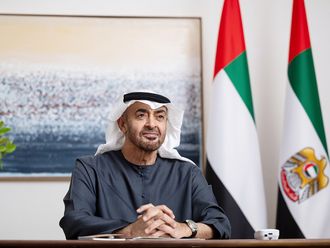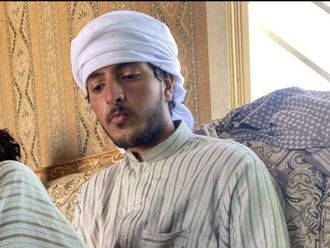Sharjah: The media has largely failed in “humanising” the refugee crisis by overly focusing on statistics, policies, and “Euro-centric” stories while underplaying the suffering in host countries across the region, the International Government Communication Forum (IGCF) heard on Thursday in Sharjah.
Conflict in Syria, Iraq, Yemen and other countries have forced millions of people to move as refugees, mainly to countries such as Jordan, Lebanon and Egypt, as well as to Europe in lesser numbers.
On Thursday, an IGCF panel discussed how the media needs to highlight the human impact of policies on refugees. The comments came during the last session of the two-day event, which was titled ‘Impact of Conflicts and Refugees on Arab Development.’ The session, which took place at Expo Centre Sharjah, was held in cooperation with The Big Heart Foundation.
Speaking about refugees and the general media coverage, Tamara Saeb, head of communications for Medecins Sans Frontieres (Doctors Without Borders) in the UAE, said: “These aren’t numbers; they are people. The media should focus on what is the impact on them when borders close; what does that mean for the people stranded.”
Saeb said pictures of Arab refugees traversing across Europe dominated the coverage while regional countries bore the brunt of the crisis.
“86 per cent of migrants are not in Europe, they are in their neighbouring countries. You get shocked when you see a migrant living in mud in France but this is how millions of them are living out their daily lives in [regional] host countries.”
She conceded that part of the reason why Europe received more coverage is because “it’s easy to cover these stories in Europe but, in South Sudan, for example, it’s hard.”
Mariam Farag, group CSR manager at MBC Group, said the media should also lend more support in shedding light on the work being done for refugees.
“I met a young refugee girl. She’s ten years old but doesn’t know how to read and write. She was five when she became a refugee. Her name is Aisha and she symbolises a lost generation… We need the world, civil society to work together and give them media support to shed light on what’s happening in host countries,” Farag added.
She said though “we feel drained by unpleasant news in media everyday” about refugees, “the viewers are looking at numbers, not humans. So tell us the human story. At MBC, each Ramadan we focus on humanitarian issues and highlight individual stories. Empathetic storytelling is vital in mass media.”












